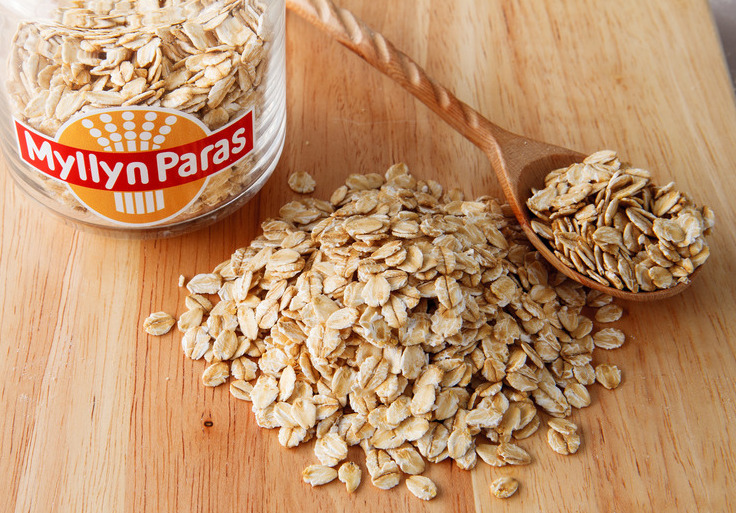
Oats have many scientifically verified health benefits, making them one of the best grains for human consumption. Oats contain around 10% of fiber, out of which 4% is soluble (more than in any other grain). Other nutritional benefits include a relatively high protein content (13%), good amount of unsaturated fats (5,3%), and low levels of saturated fats (1,2%). Oats also supply significant amounts of minerals (magnesium, calcium, iron, zinc) vitamins (vitamin E, thiamine, folate and B6) and phytochemicals (phytosterols, phenolics and carotenoids).
The consumption of oats has been associated with many cardiovascular benefits, including the reduction in total and LDL cholesterol. Oats have also been shown to have small beneficial effects on blood pressure control, incidence of Type 2 diabetes, post prandial blood sugars and satiety.
The key ingredient of oats that is responsible for cardiovascular and blood pressure benefits is beta-glucan. Beta-glucan is a soluble fiber which can be found in grains, funghi and algea, among others. Oats are especially rich in beta-glucan.
Approved health claims for oats by The European Food Safety Authority (EFSA)
1. Regular consumption of beta-glucans contributes to maintenance of normal blood cholesterol concentration. Beneficial effect is obtained with a daily intake of 3 g of beta-glucans from oats or oat bran.
2. Consumption of beta-glucans from oats contributes to the reduction of the glucose rise after a meal. Beneficial effect is obtained by consuming the beta-glucans from oats as part of the meal (4 g of beta-glucans from oats for each 30 g of available carbohydrates in a quantified portion as part of the meal).
3. Oat grain fiber contributes to an increase in fecal bulk.
4. Oat beta-glucan has been shown to lower blood cholesterol. High cholesterol is a risk factor in the development of coronary heart disease. Beneficial effect is obtained with a daily intake of 3 g of oat beta-glucan.
Source: The European Food Safety Authority EFSA Article 13.1 & 14.1
Food Servings of Oat Beta Glucans (providing 1 gram)
- A bowl of porridge (using 30 - 50 g of porridge oats)
- 2 tablespoons of oat bran
- 1 oat breakfast biscuit
- 1 serving of oat bran cereals
- 3 oatcakes
- 2 slices or 1 roll oats bread
- 250 ml glass of oat drink/milk
Oats in other uses
Besides being suitable for direct consumption, oats have potential for being a component of meat products (patent pending). Myllyn Paras is exploring options of replacing animal food consumption with vegetarian meal but at the same time not weakening nutritional value nor taste of meat.
